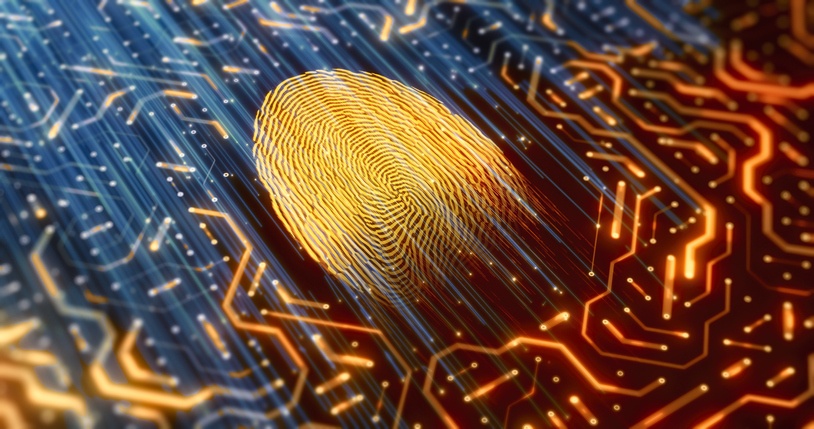Digital identity is increasingly integral to the functionality and stability of our economy.
By Charlotte Hackett

The rapid adoption of digital identity and biometric technology by consumers has created a seismic shift in the attitudes of large institutions, particularly in the Financial, Public and Service sectors.
As investment continues in the development and implementation of this technology worldwide, the digitisation of society gathers pace.
The most significant transformation can be observed in emerging economies that are adopting this technology at a rapid pace and on a large scale. The technology is enabling developing countries to provide greater access to government benefits, secure cross-border authentication and digital transactions, and is contributing to continued economic growth. Governments across these developing economies are spending more on digital identity and biometrics than ever before.
South Africa and India are excellent examples of how access to mobile devices has enabled the successful implementation of single, low-cost verification infrastructures. All citizens can be easily authenticated and at the same time protect their personal data.
The case study of Ipsidy Inc. (a division of Safe Trade Africa) is an example of the successful integration of an identity transaction platform.
The platform supports low-cost mobile transactions that are embedded with the participant’s authenticated identity and significantly reduces the opportunity for data theft and fraud. In February 2019, Ipsidy Inc. and Ayonix announced the release of ‘Biometric IP Selfies’ using face recognition technology to confirm and authenticate identify to approve business transactions in just 20 to 30 seconds.
The first major transformation in emerging economies has been access to government benefits and the opportunity to vote in government elections. Inc42 reports on how India’s government has certified online voting start-up, Right2Vote, for use in future elections by Indian citizens abroad or residing in a state other than the one they are eligible in to cast votes.
The identity of the voter is verified through a selfie, Aadhaar fingerprint, iris biometrics, or Aadhaar OTP. Identity is key to critical services and participation in financial, social and political systems, leading to greater empowerment. Ghana is preparing for its first digital election and a digital census, utilising tablet devices with the aid of satellite imagery.
Daon conducted a recent study in Nigeria earlier this year, which demonstrates how enhanced digital on boarding has been implemented to instil trust for banks and fin-techs while increasing their customer base and decreasing the prevalence of fraud.
Developing economies are securing borders through cross-border authentication. HID Global are currently collaborating with the government of Tanzania to implement an e-immigration platform for web-based visa applications and residence permits. In an interview conducted in June 2019, Steve Warne (Senior Director of Product Marketing at HID Global) commented how this program enables the Tanzanian government to better ‘adapt to changing standards, adopt new capabilities and issue many different types of ID documents.
It encompasses all critical system elements spanning the entire identity journey from data capture and enrolment including biometric identification, to application process, adjudication, data preparation, personalization and issuance’. Steve Warne highlights how such systems empower citizens to keep control of their identities: ‘A document management system should be able to support the move to mobile ID’s as well as the verification infrastructure for authenticating them, mobile technologies will give citizens greater control over what identification information they share’.
The third major transformation is enabling emerging economies to process payments digitally through the use of mobile and, more recently, biometric smart cards.
In 2017, South Africa trialled a biometric card developed by MasterCard that allowed them to make a payment at any EMV terminal and to authenticate the transaction by placing their finger on the embedded sensor. According to MasterCard (April 2017) ‘the new card builds on fingerprint scanning technology used for mobile payments today and can be used at EMV terminals worldwide.
A cardholder enrols their card by simply registering with their financial institution and upon registration; their fingerprint is converted into an encrypted digital template that is stored on the card.
The card is now ready to be used at any EMV card terminal globally. When shopping and paying in-store, the biometric card works like any other chip card.’ In February 2019, NEXT Biometrics and M-Tech joined forces to deploy biometric smart cards in India. The partnership targets contact-based and dual interface biometric smart card solutions to address current and evolving banking card standards.
In summary, the digital identity and biometric industry continues to expand on a global scale. There is a considerable amount of investment in emerging economies that are adopting and scaling these solutions at an extraordinary rate. Whilst developed countries are prolific in the use of these technologies to improve security, privacy and ease of use on existing platforms, it is the developing countries that are looking at how the use of a digital identity can empower communities and its people within. The significant transformation achieved through the use of digital identity and biometric technologies will continue to support the growth and advancement of these emerging economies for years to come.
Charlotte Hackett – Principal Search Consultant – Payment, Authentication & Biometric Technology at psd Group
- Passive facial biometric liveness solution passes iBeta Presentation Attack Detection
- As biometric facial recognition technology spreads, privacy concerns follow
- Hacktivismo | A Forma de Protesto da Cibercultura na Sociedade Digital
- The spy in your wallet: Credit cards have a privacy problem
- Top 10 Digital Transformation Trends For 2020(Abre numa nova aba do navegador)
- Online Identity Is Important: Let’s Upgrade Extended Validation. By Patrick Nohe
- What Is the Internet of Things?
- Gartner predicts increase in biometric authentication and SaaS-Delivered IAM
- How to Secure Bitcoin Exchanges
- Smart Contracts – The Future For Content Creators
- Facial recognition: strategic imperative for national security
































